The war in Ukraine has once again shown that the veto power wielded by the United Nations Security Council’s five permanent members is a major obstacle to peace. Introducing a mechanism for overturning permanent members’ vetoes would make the body much more legitimate and effective.
WASHINGTON, DC – Russia’s invasion of Ukraine has exposed many grave weaknesses in the international order. One prominent flaw that needs addressing concerns the United Nations Security Council and its role in overseeing the multilateral system. Specifically, and underscoring a point we highlighted in our essay in a recent Brookings Institution report, the war in Ukraine has once again shown the veto power of the Security Council’s five permanent members to be a major stumbling block to peace.
Chapter I, Article 1 of the UN Charter, which was drafted following the devastation of World War II, states that the UN’s first purpose is to maintain international peace and security. To that end, the organization aims to prevent threats to peace, suppress acts of aggression, and bring about peaceful settlement of international disputes. Chapters VI and VII of the Charter entrust this core mission to the Security Council.
But the absolute veto power granted by Article 27 to each of the Council’s permanent members (the P5, comprising China, France, Russia, the United Kingdom, and the United States) has from the beginning been a key obstacle to the body’s fulfillment of its mission. That is because the P5 have almost always been divided into rival geopolitical blocs, with a member of one bloc – mostly either the Soviet Union (and now its heir, Russia) or the US – exercising its veto on many crucial decisions.
Russia’s savage blitz on Ukraine is a stark reminder of the Security Council’s impotence when the interests of one or more of the P5 conflict with those of the other members. After WWII, optimists hoped that a threat to security would lead the Security Council initially to impose comprehensive binding economic sanctions in order to deter aggression and encourage peaceful conflict resolution.
But in the current Ukraine conflict, Russia’s Security Council veto means that the US and its allies can impose sanctions only through a “coalition of the willing.” True, the large number of countries and the extraterritorial reach of the dollar-based payments system gives US-imposed sanctions tremendous clout. Yet, in this case as in others, a Security Council-enforced system of global sanctions would be even more debilitating to the sanctioned economy.
Moreover, the emerging role of digital money and changes in the international monetary system that it might bring about could soon diminish the dollar’s role and reduce what a US-led coalition of the willing can achieve. And in other cases, such as former US President Donald Trump’s 2018 decision to reimpose harsh economic sanctions against Iran, the dollar’s extraterritorial reach has generated considerable resentment even among US allies.
Finally, while much of the world is currently rallying around the US-led coalition of democracies in the face of blatant Russian aggression against Ukraine, unfortunately we cannot rule out the possibility that a future Trump or Trump-like administration in the US does something that could potentially make its Security Council veto a problem for much of the democratic world.
The fact that an increasingly illegitimate and ineffective Security Council lies at the heart of today’s multilateral system is all the more unfortunate given the growing range of threats to peace and security. These include not only conventional acts of aggression of the sort the world is witnessing in Ukraine – and which could yet escalate to nuclear exchanges – but also other security threats posed by new technologies.
For example, state or non-state actors could cause havoc through devastating cyberattacks or the abuse of artificial intelligence. Synthetic viruses even more deadly than the coronavirus that caused COVID-19 could inflict unspeakable harm, whether through bioterror or bio-error. And climate change is a threat to all of humanity that must be on a reformed Security Council’s radar screen. Tight and universally binding regulations are urgently needed in all of these domains.
We therefore advocate radically changing the way the Security Council operates, by introducing the possibility of overturning a permanent member’s veto. This could be done by adding a clause to Article 27 that would allow a large double majority – representing, for example, at least two-thirds of member countries and two-thirds of the world’s population – to override a veto.
Our proposal would be vetoed today by Russia and probably China – and perhaps also by the three democracies among the P5, including the US. But a large majority of countries would likely support it. In fact, this is an ideal time for the world’s democracies, including the US, to propose such a change. By backing it, President Joe Biden’s administration could seize the moment and show its determination to create a more equitable and inclusive multilateral system. This would send a powerful – and widely welcomed – message that the US is confident that its enlightened national self-interest will be in accord with the interests of a large majority of the world’s countries and people.
At first, such a proposal would be unlikely to get sufficient backing in the US Congress. But every crisis contains an opportunity. A scheme as outlined above could spur support for reform in the US and other democracies among all who are concerned about old and new threats to human security.
With peace increasingly at risk, the Security Council could play a much greater role in mitigating dangers. Let us hope that Russia’s aggression against Ukraine triggers a radical change that makes the body more legitimate and effective.
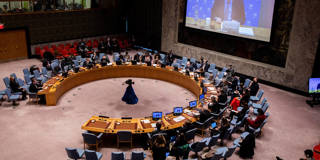

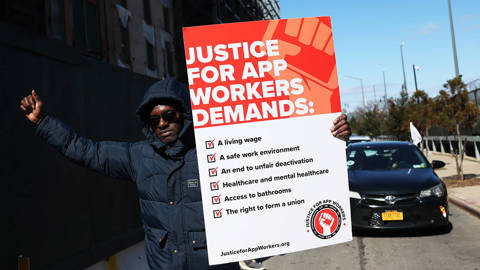
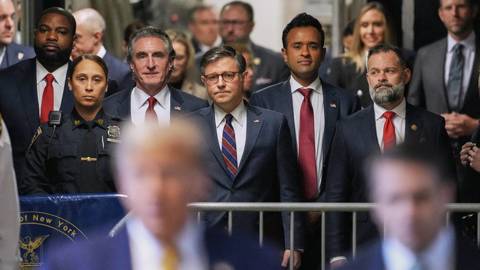
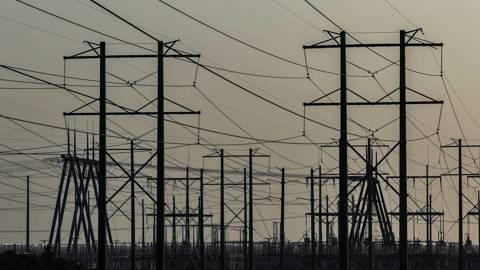


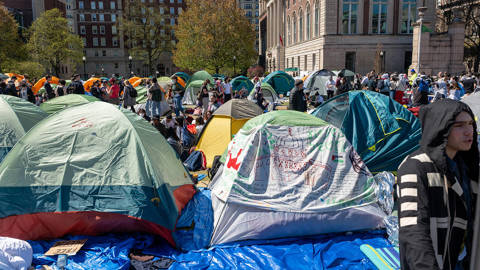
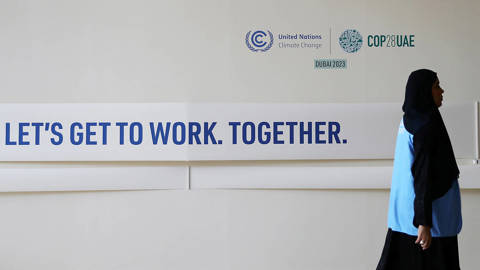
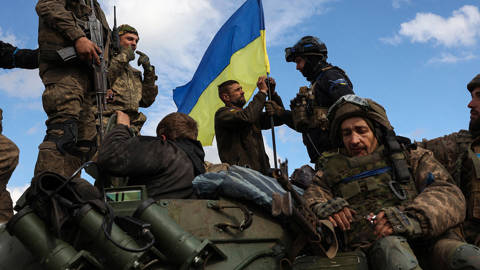
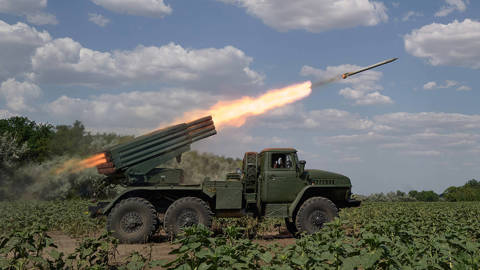
WASHINGTON, DC – Russia’s invasion of Ukraine has exposed many grave weaknesses in the international order. One prominent flaw that needs addressing concerns the United Nations Security Council and its role in overseeing the multilateral system. Specifically, and underscoring a point we highlighted in our essay in a recent Brookings Institution report, the war in Ukraine has once again shown the veto power of the Security Council’s five permanent members to be a major stumbling block to peace.
Chapter I, Article 1 of the UN Charter, which was drafted following the devastation of World War II, states that the UN’s first purpose is to maintain international peace and security. To that end, the organization aims to prevent threats to peace, suppress acts of aggression, and bring about peaceful settlement of international disputes. Chapters VI and VII of the Charter entrust this core mission to the Security Council.
But the absolute veto power granted by Article 27 to each of the Council’s permanent members (the P5, comprising China, France, Russia, the United Kingdom, and the United States) has from the beginning been a key obstacle to the body’s fulfillment of its mission. That is because the P5 have almost always been divided into rival geopolitical blocs, with a member of one bloc – mostly either the Soviet Union (and now its heir, Russia) or the US – exercising its veto on many crucial decisions.
Russia’s savage blitz on Ukraine is a stark reminder of the Security Council’s impotence when the interests of one or more of the P5 conflict with those of the other members. After WWII, optimists hoped that a threat to security would lead the Security Council initially to impose comprehensive binding economic sanctions in order to deter aggression and encourage peaceful conflict resolution.
But in the current Ukraine conflict, Russia’s Security Council veto means that the US and its allies can impose sanctions only through a “coalition of the willing.” True, the large number of countries and the extraterritorial reach of the dollar-based payments system gives US-imposed sanctions tremendous clout. Yet, in this case as in others, a Security Council-enforced system of global sanctions would be even more debilitating to the sanctioned economy.
Moreover, the emerging role of digital money and changes in the international monetary system that it might bring about could soon diminish the dollar’s role and reduce what a US-led coalition of the willing can achieve. And in other cases, such as former US President Donald Trump’s 2018 decision to reimpose harsh economic sanctions against Iran, the dollar’s extraterritorial reach has generated considerable resentment even among US allies.
SPRING SALE: Save 40% on all new Digital or Digital Plus subscriptions
Subscribe now to gain greater access to Project Syndicate – including every commentary and our entire On Point suite of subscriber-exclusive content – starting at just $49.99.
Subscribe Now
Finally, while much of the world is currently rallying around the US-led coalition of democracies in the face of blatant Russian aggression against Ukraine, unfortunately we cannot rule out the possibility that a future Trump or Trump-like administration in the US does something that could potentially make its Security Council veto a problem for much of the democratic world.
The fact that an increasingly illegitimate and ineffective Security Council lies at the heart of today’s multilateral system is all the more unfortunate given the growing range of threats to peace and security. These include not only conventional acts of aggression of the sort the world is witnessing in Ukraine – and which could yet escalate to nuclear exchanges – but also other security threats posed by new technologies.
For example, state or non-state actors could cause havoc through devastating cyberattacks or the abuse of artificial intelligence. Synthetic viruses even more deadly than the coronavirus that caused COVID-19 could inflict unspeakable harm, whether through bioterror or bio-error. And climate change is a threat to all of humanity that must be on a reformed Security Council’s radar screen. Tight and universally binding regulations are urgently needed in all of these domains.
We therefore advocate radically changing the way the Security Council operates, by introducing the possibility of overturning a permanent member’s veto. This could be done by adding a clause to Article 27 that would allow a large double majority – representing, for example, at least two-thirds of member countries and two-thirds of the world’s population – to override a veto.
Our proposal would be vetoed today by Russia and probably China – and perhaps also by the three democracies among the P5, including the US. But a large majority of countries would likely support it. In fact, this is an ideal time for the world’s democracies, including the US, to propose such a change. By backing it, President Joe Biden’s administration could seize the moment and show its determination to create a more equitable and inclusive multilateral system. This would send a powerful – and widely welcomed – message that the US is confident that its enlightened national self-interest will be in accord with the interests of a large majority of the world’s countries and people.
At first, such a proposal would be unlikely to get sufficient backing in the US Congress. But every crisis contains an opportunity. A scheme as outlined above could spur support for reform in the US and other democracies among all who are concerned about old and new threats to human security.
With peace increasingly at risk, the Security Council could play a much greater role in mitigating dangers. Let us hope that Russia’s aggression against Ukraine triggers a radical change that makes the body more legitimate and effective.